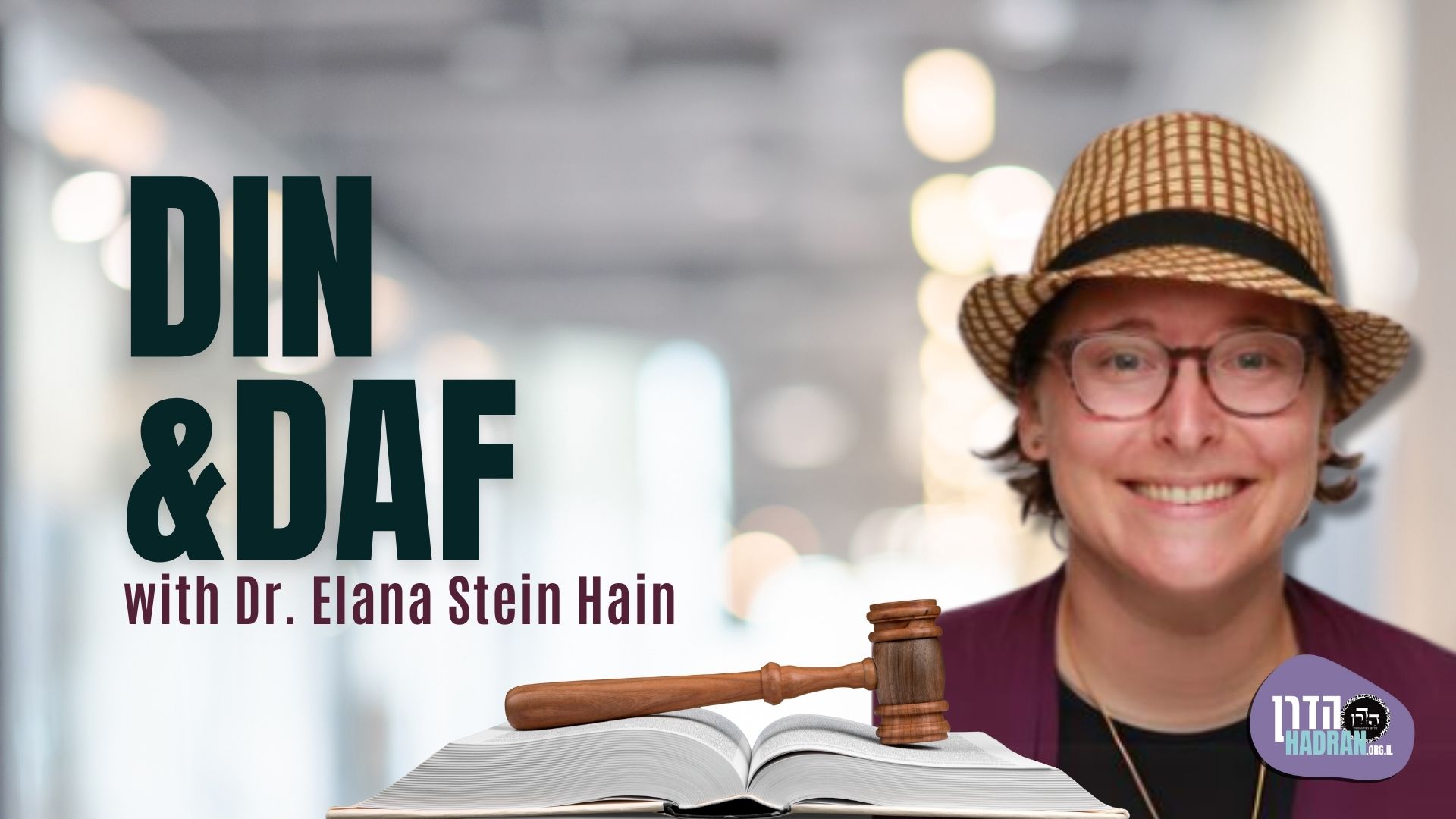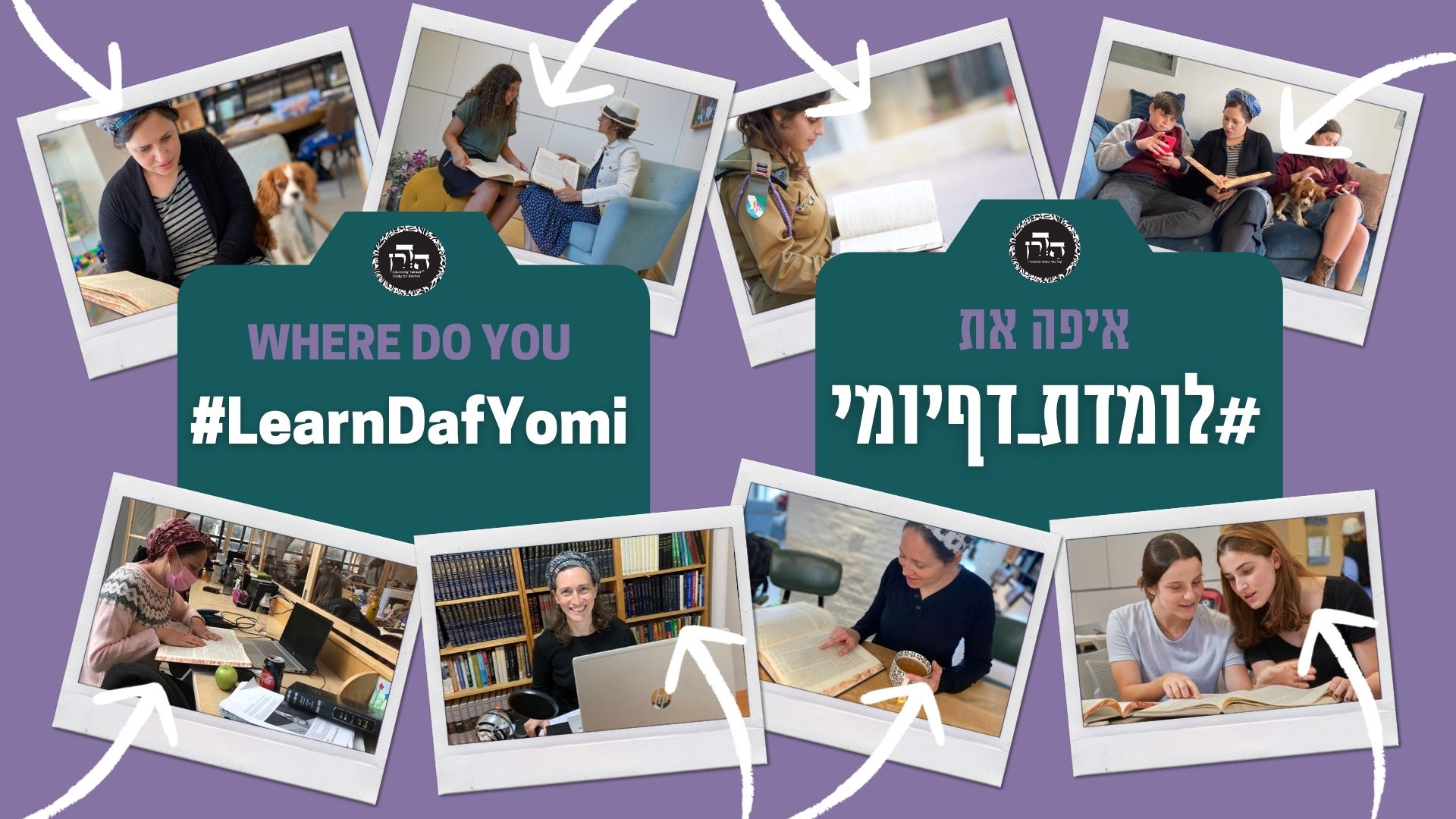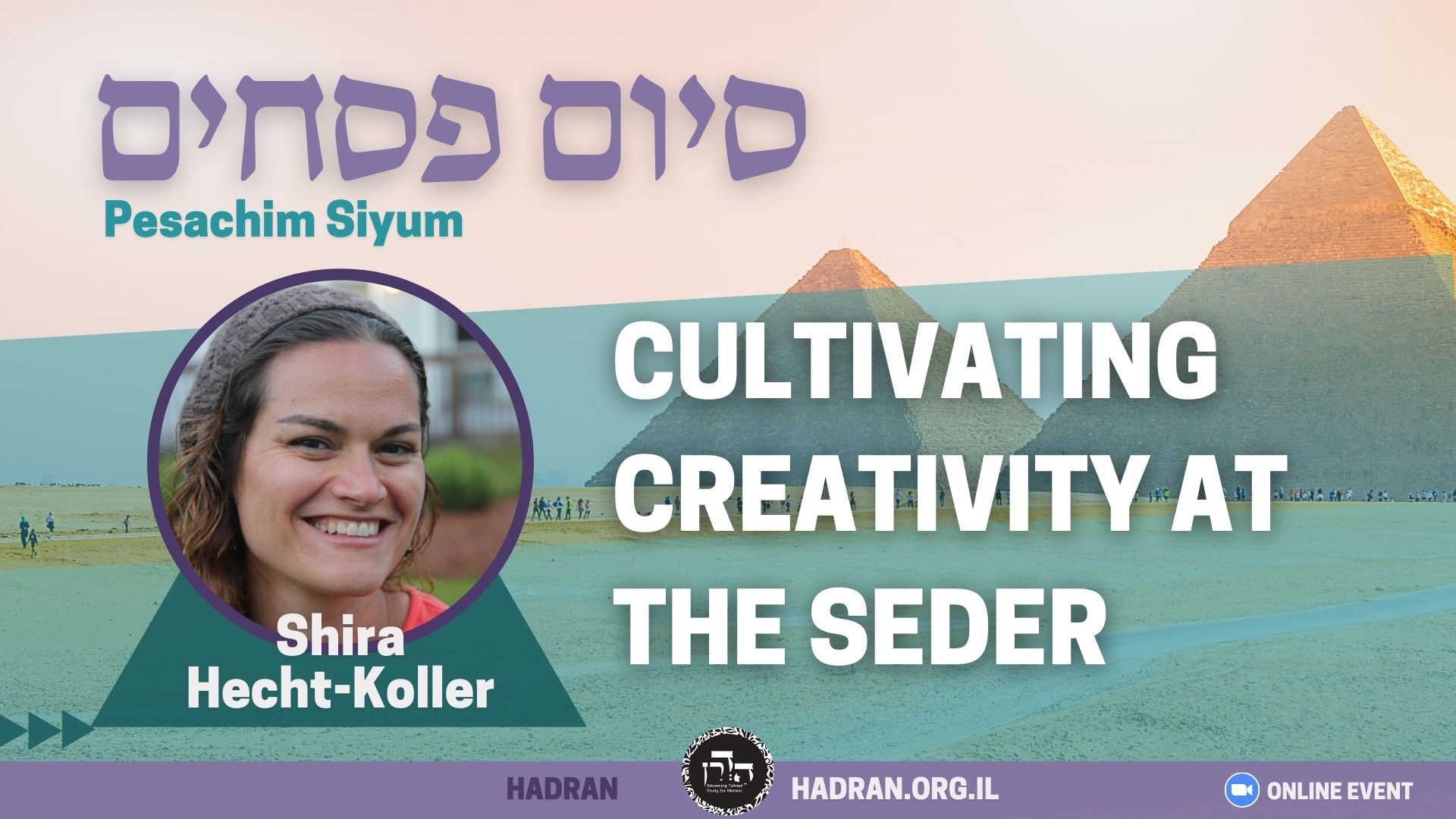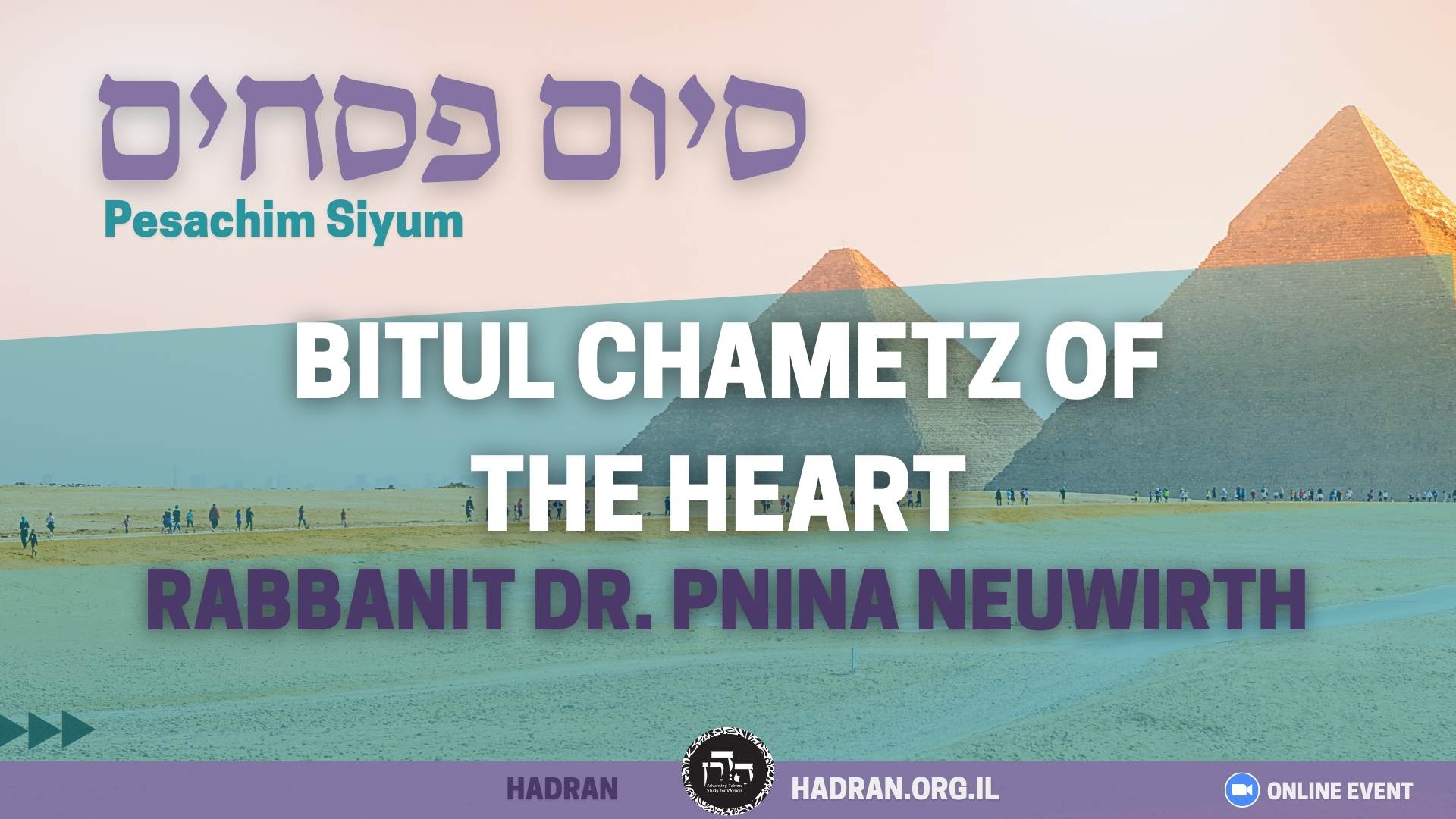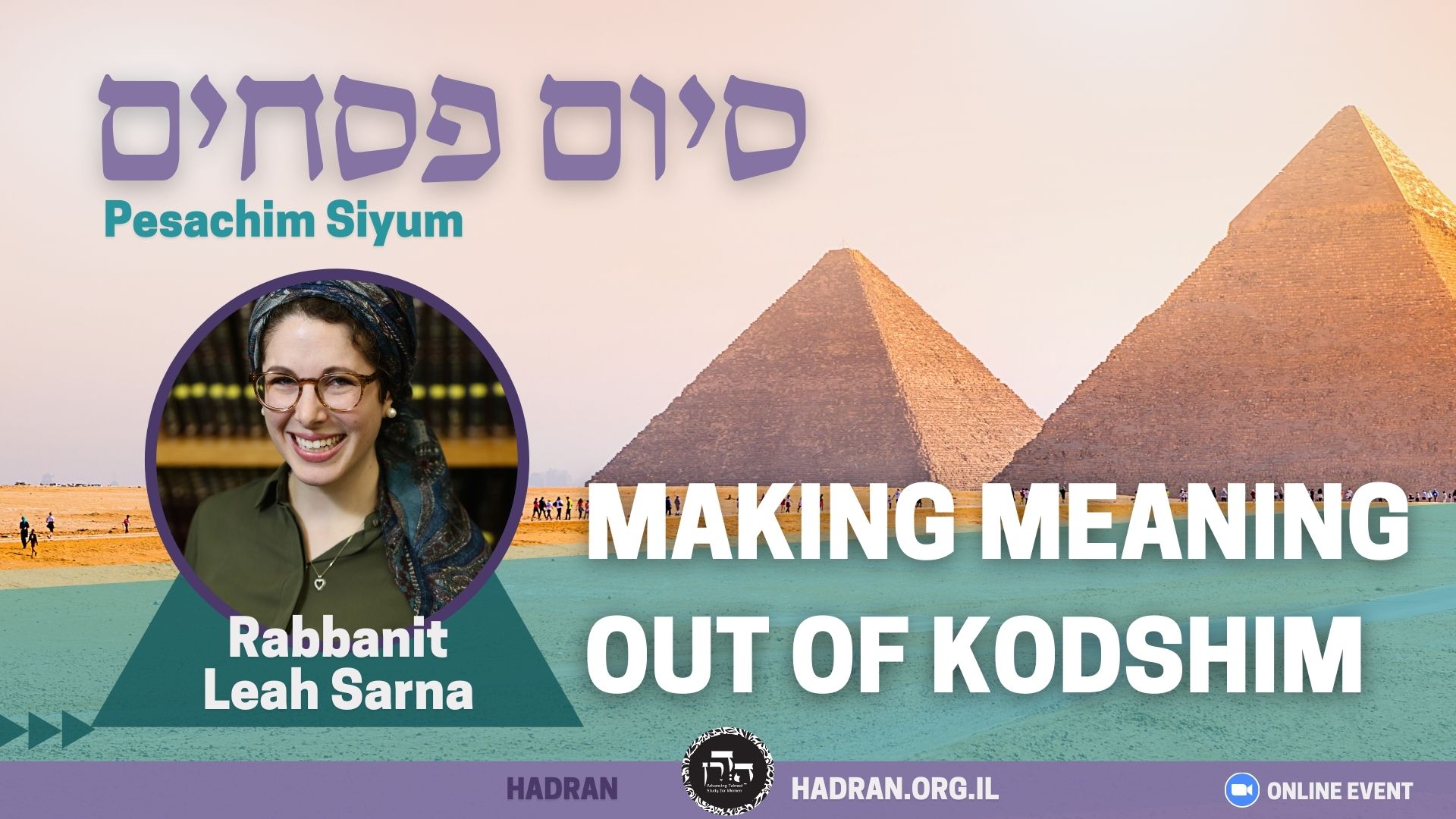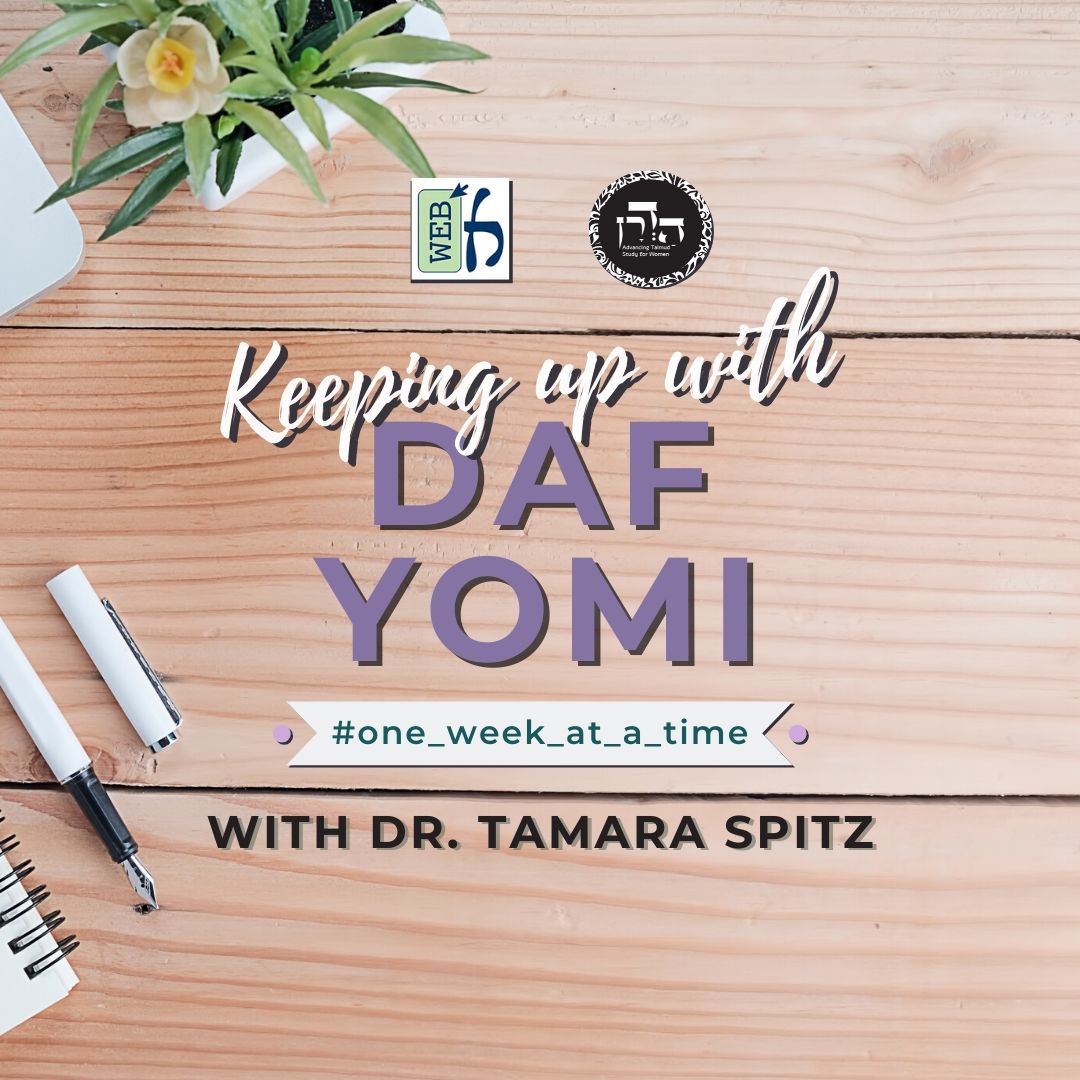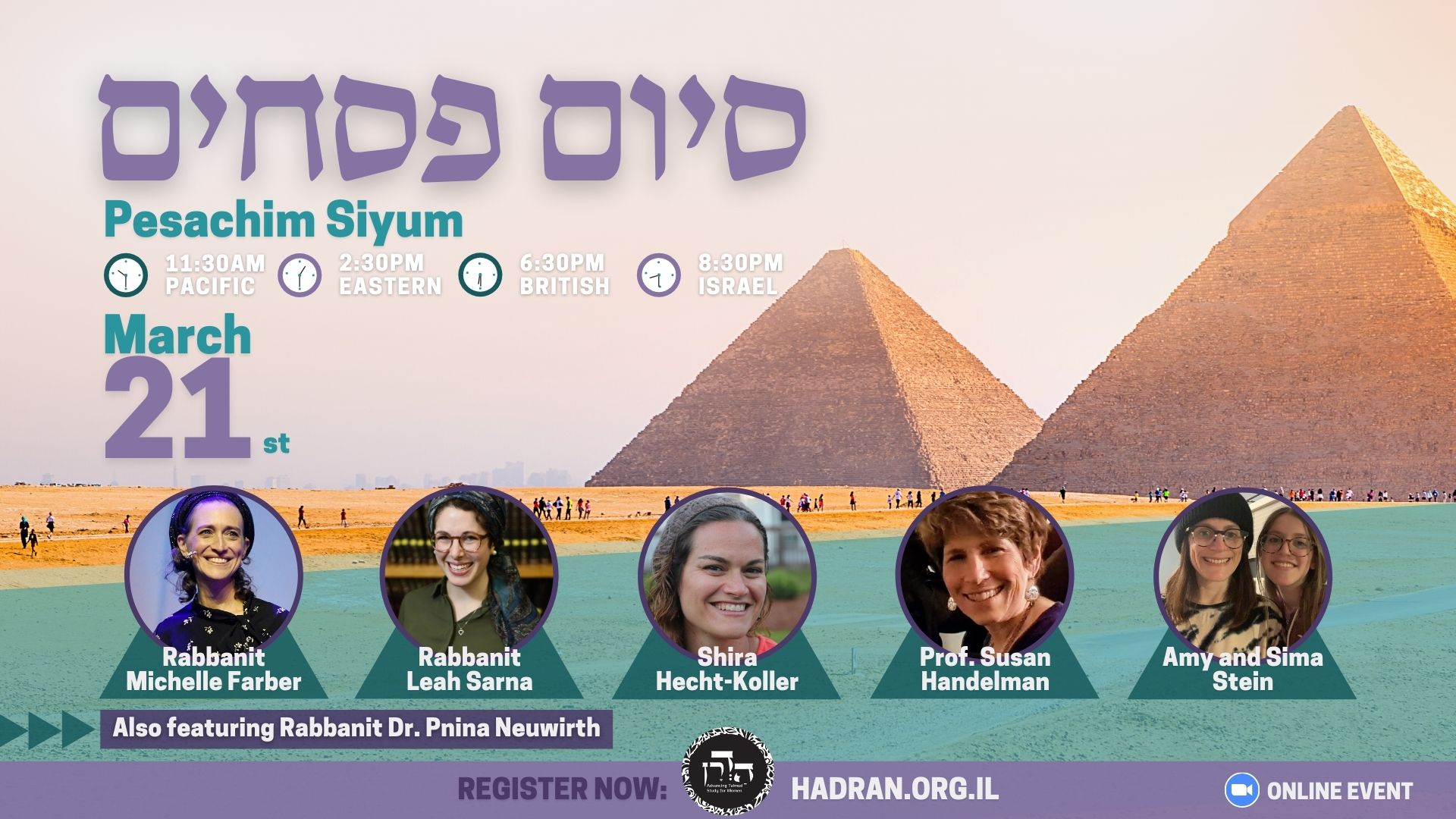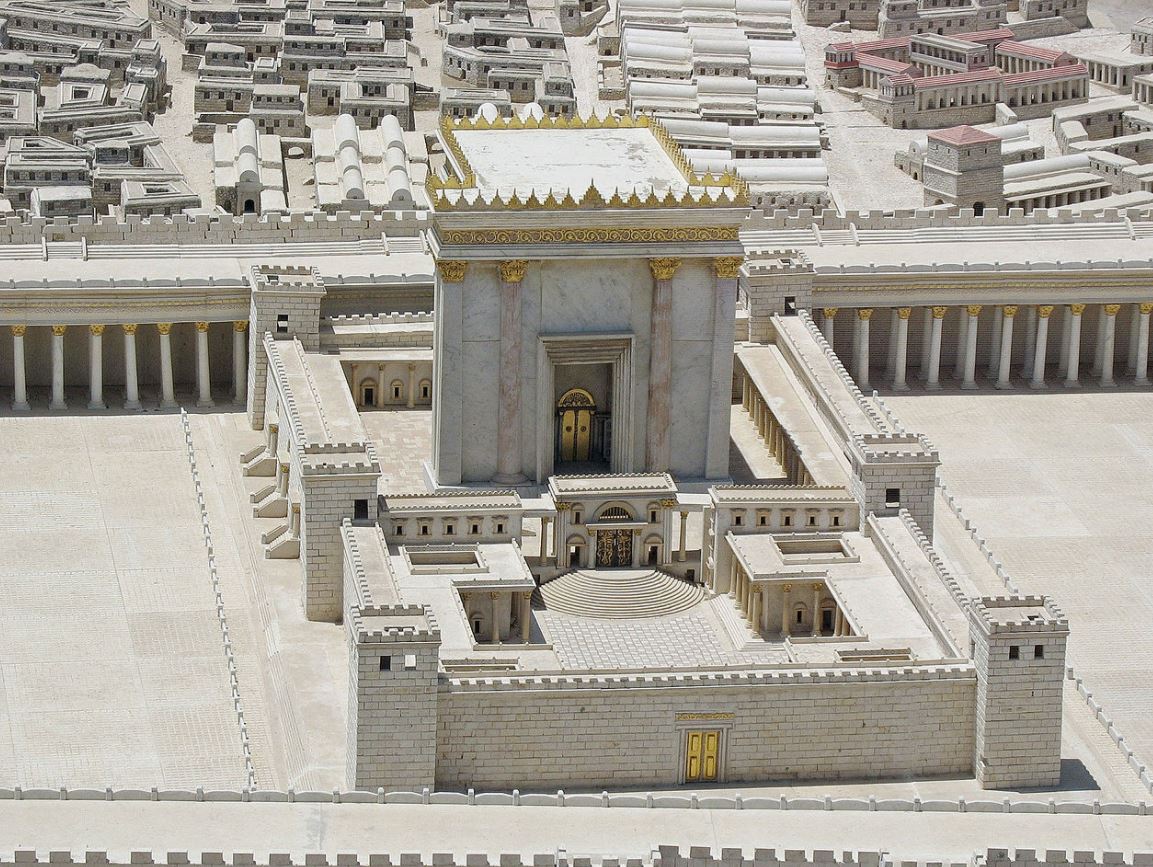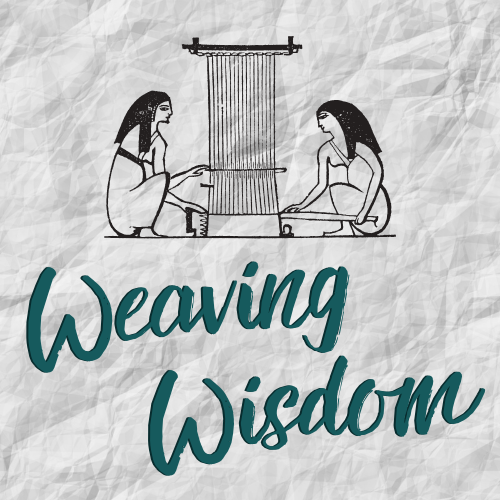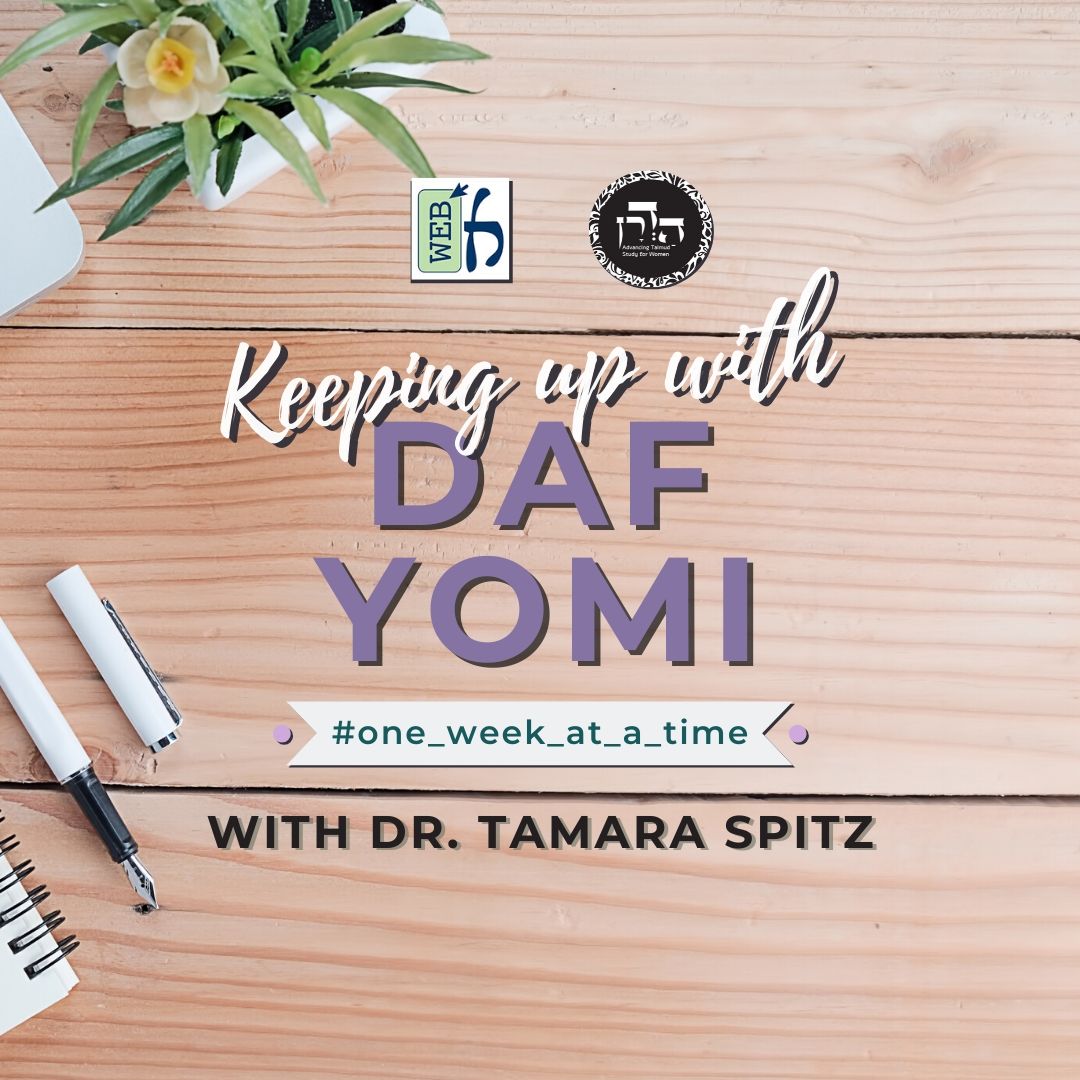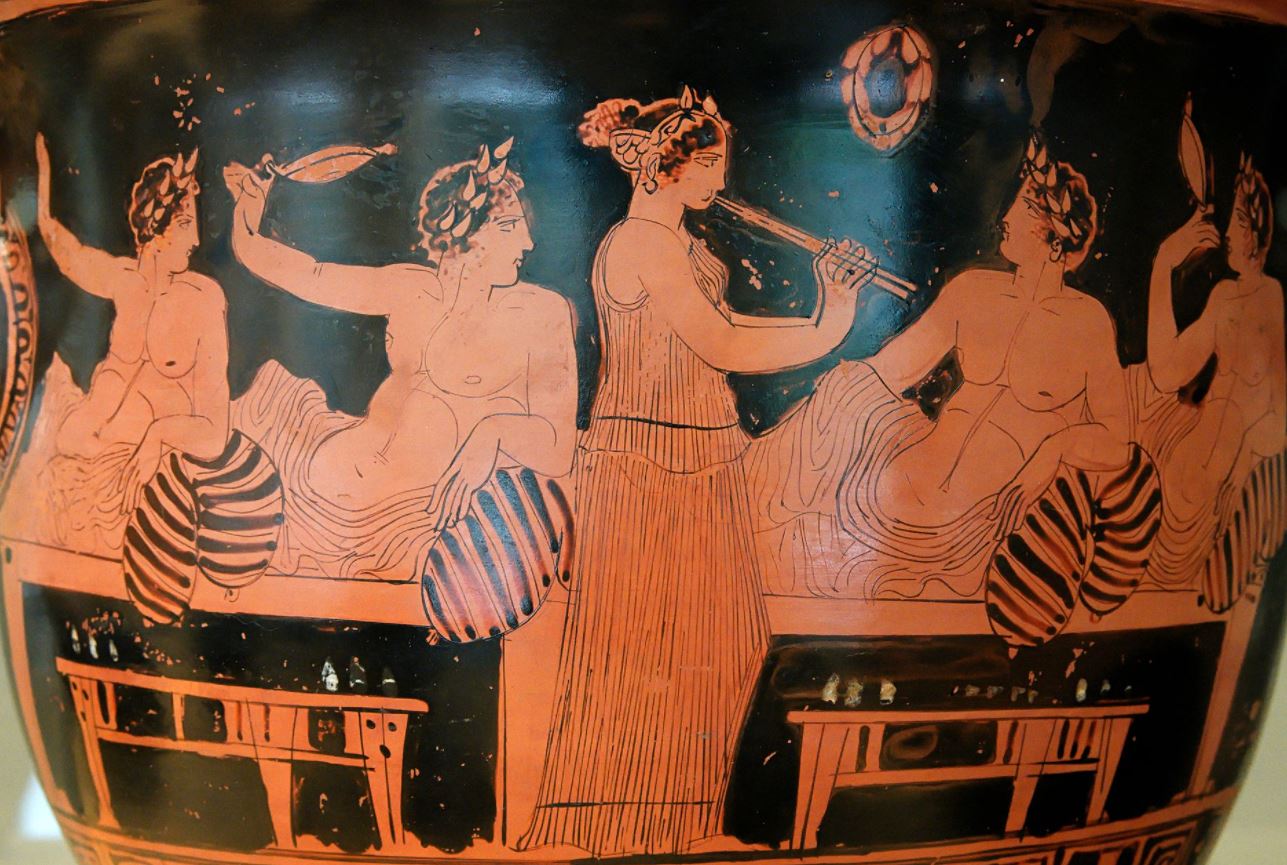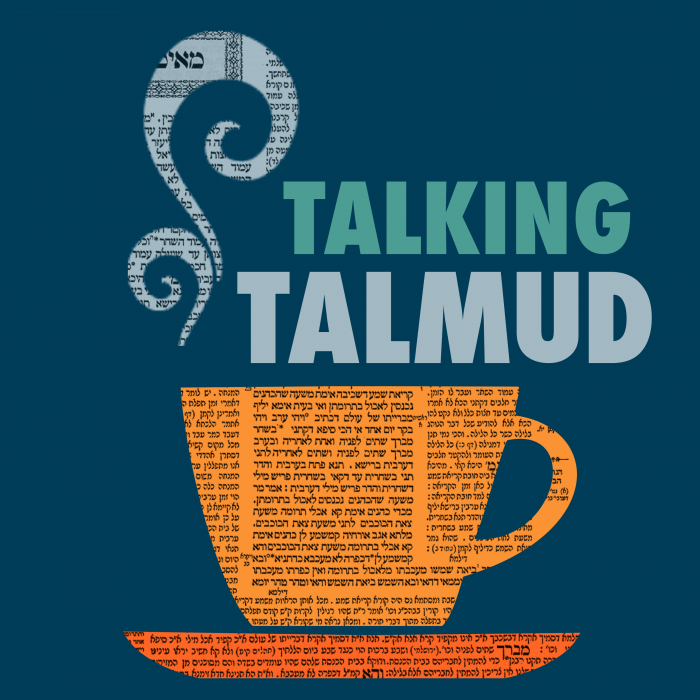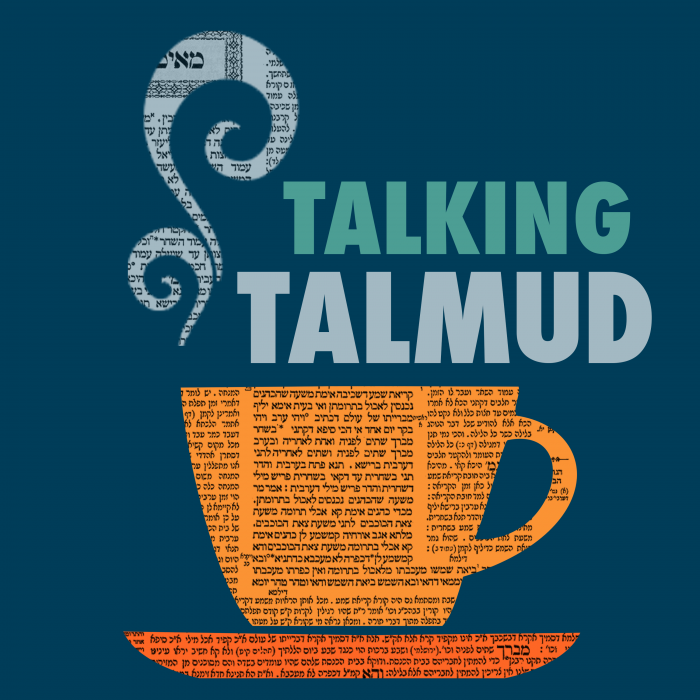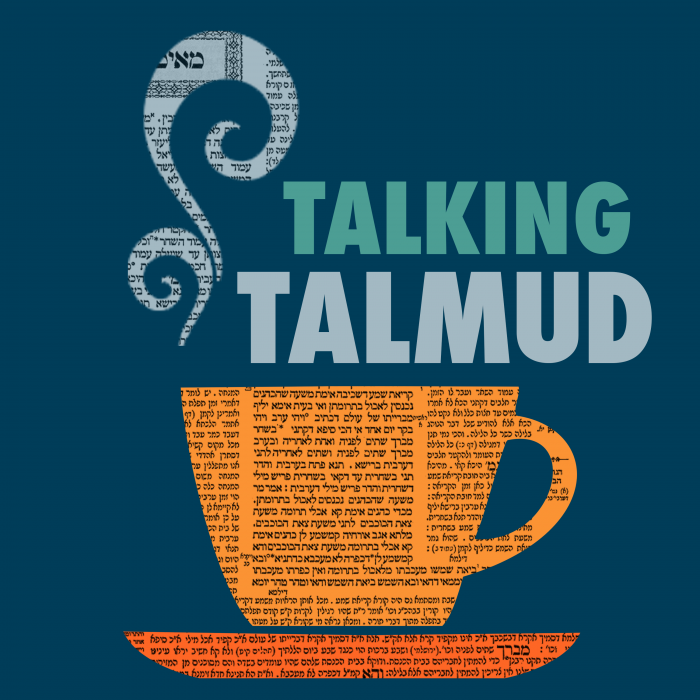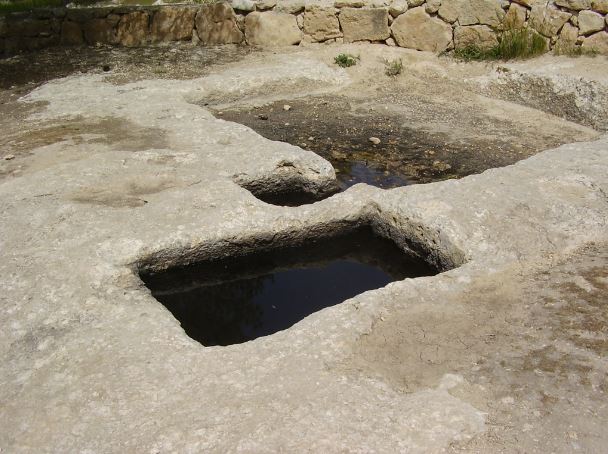Pesachim 41
אַחֲרוֹסֶת קָאָמַר מָר, אוֹ אַחַרְדָּל קָאָמַר מָר? אֲמַר לֵיהּ: לְמַאי נָפְקָא מִינַּהּ?
Did the Master say this statement with regard to ḥaroset, or did the Master say it with regard to mustard? He said to him: What is the practical difference whether he was referring to ḥaroset or mustard? Both of these are mentioned together, and the same halakha applies to both.
לִדְרַב כָּהֲנָא. דְּאָמַר רַב כָּהֲנָא: מַחֲלוֹקֶת לְתוֹךְ הַחַרְדָּל, אֲבָל לְתוֹךְ הַחֲרוֹסֶת — דִּבְרֵי הַכֹּל יִשָּׂרֵף מִיָּד.
He said to him: There is a difference with regard to that which was stated by Rav Kahana, as Rav Kahana said: The dispute between Rabbi Meir and the Rabbis concerns a case in which flour was added to mustard. However, if flour was added to ḥaroset, everyone agrees that it must be burned immediately. Rav Naḥman bar Yitzḥak was asking Rav Huna, son of Rav Yehuda, whether he disagrees with Rav Kahana and maintains that the Rabbis dispute the halakha in the case of ḥaroset as well.
אֲמַר לֵיהּ: לָא שְׁמִיעַ לִי, כְּלוֹמַר לָא סְבִירָא לִי.
He said to him: I did not hear about this statement; that is to say, I do not hold in accordance with it. I do not distinguish between these two cases, as in my opinion the Rabbis permit one to eat even this ḥaroset.
אָמַר רַב אָשֵׁי: כְּווֹתֵיהּ דְּרַב כָּהֲנָא מִסְתַּבְּרָא, מִדְּאָמַר שְׁמוּאֵל: אֵין הֲלָכָה כְּרַבִּי יוֹסֵי. מַאי לָאו? צַמּוֹתֵי הוּא דְּלָא צָמֵית, הָא חַמּוֹעֵי מְחַמְּעָא.
Rav Ashi said: It is reasonable to rule in accordance with the opinion of Rav Kahana, from the fact that Shmuel said that the halakha is not in accordance with the opinion of Rabbi Yosei, who maintains that vinegar will prevent grain from becoming leavened. What, isn’t it correct to infer from here that vinegar added to flour does not shrink the grain and will even leaven it? According to this explanation, food that contains vinegar, e.g., ḥaroset, is likely to be leavened immediately, as claimed by Rav Kahana.
לָא, דִּילְמָא לָא מִצְמָת צָמֵית, וְלָא חַמּוֹעֵי מְחַמַּע.
The Gemara rejects this interpretation: No, this is no proof, as perhaps Shmuel meant that, according to the opinion of the Rabbis, vinegar will neither cause the wheat to shrink nor leaven it. Consequently, this statement cannot serve as a proof of the opinion of the Rabbis with regard to ḥaroset.
אֵין מְבַשְּׁלִין וְכוּ׳. תָּנוּ רַבָּנַן: ״בְּמַיִם״ — אֵין לִי אֶלָּא בְּמַיִם, שְׁאָר מַשְׁקִין מִנַּיִין?
The mishna taught that one may not boil the Paschal lamb in liquid. To explain this issue, the Gemara cites a baraita that interprets the verse: “You shall not eat it partially roasted, nor boiled in any way in water, but roasted with fire; its head with its legs, and with the innards in it” (Exodus 12:9). The Sages taught: “In water”; I have derived nothing other than the prohibition against boiling the Paschal lamb in water. From where do I know that it is likewise prohibited to boil it in other liquids?
אָמַרְתָּ, קַל וָחוֹמֶר: וּמָה מַיִם שֶׁאֵין מְפִיגִין טַעְמָן — אֲסוּרִין, שְׁאָר מַשְׁקִין שֶׁמְּפִיגִין טַעְמָן — לֹא כׇּל שֶׁכֵּן!
You said that this can be derived by means of an a fortiori inference: And just as water, which does not temper the taste of the food boiled in it, is prohibited for boiling the Paschal lamb, with regard to other liquids, which do temper the taste of the food boiled in them, is it not all the more so that it is prohibited to boil the Paschal lamb in them?
רַבִּי אוֹמֵר: ״בְּמַיִם״ — אֵין לִי אֶלָּא מַיִם, שְׁאָר מַשְׁקִין מִנַּיִין? תַּלְמוּד לוֹמַר: ״וּבָשֵׁל מְבֻשָּׁל״, מִכׇּל מָקוֹם.
Rabbi Yehuda HaNasi provides a different derivation and says: From the phrase “In water,” I have derived nothing other than the prohibition against boiling the Paschal lamb in water. From where do I learn that it is likewise prohibited to boil it in other liquids? The verse states: “Nor boiled in any way,” which means: In any case, i.e., boiling the Paschal lamb in any type of liquid is prohibited.
מַאי בֵּינַיְיהוּ? אִיכָּא בֵּינַיְיהוּ צְלִי קֵדָר.
The Gemara asks: What is the practical difference between these two derivations? The Gemara answers: The practical difference between them is with regard to meat that is roasted in a pot without the addition of any liquid, but is cooked in its own juices. According to Rabbi Yehuda HaNasi, it is prohibited to prepare the Paschal lamb in this manner, as this is considered boiling, whereas the Rabbis maintain that an action is classified as boiling only if one adds liquid to the meat.
וְרַבָּנַן, הַאי ״בָּשֵׁל מְבֻשָּׁל״ מַאי עָבְדִי לְהוּ? מִבְּעֵי לֵיהּ לְכִדְתַנְיָא: בִּשְּׁלוֹ וְאַחַר כָּךְ צְלָאוֹ, אוֹ שֶׁצְּלָאוֹ וְאַחַר כָּךְ בִּשְּׁלוֹ — חַיָּיב.
The Gemara asks: And the Rabbis, with regard to that phrase, “boiled in any way,” what do they do with it? The Gemara answers: It is required for that which was taught in a baraita: If one boiled the Paschal lamb and afterward roasted it, or roasted it and afterward boiled it, he is liable to receive lashes for boiling the Paschal lamb.
בִּשְׁלָמָא בִּשְּׁלוֹ וְאַחַר כָּךְ צְלָאוֹ חַיָּיב, דְּהָא בַּשְּׁלֵיהּ. אֶלָּא צְלָאוֹ וְאַחַר כָּךְ בִּשְּׁלוֹ, הָא צְלִי אֵשׁ הוּא, אַמַּאי?
The Gemara asks: Granted, if one boiled the Paschal lamb and afterward roasted it, he is liable, as he boiled it first and is punished for this act. However, if he roasted it and afterward boiled it, and it is a food that has been roasted by fire, why is he liable?
אָמַר רַב כָּהֲנָא: הָא מַנִּי — רַבִּי יוֹסֵי הִיא. דְּתַנְיָא: יוֹצְאִין בְּרָקִיק הַשָּׁרוּי וּבִמְבוּשָּׁל שֶׁלֹּא נִימּוֹחַ, דִּבְרֵי רַבִּי מֵאִיר. רַבִּי יוֹסֵי אוֹמֵר: יוֹצְאִין בְּרָקִיק הַשָּׁרוּי, אֲבָל לֹא בִּמְבוּשָּׁל, אַף עַל פִּי שֶׁלֹּא נִימּוֹחַ.
Rav Kahana said: In accordance with whose opinion is this baraita? It is in accordance with the opinion of Rabbi Yosei, who maintains that boiling after roasting nullifies the previous act of roasting. As it was taught in a baraita: One can fulfill his obligation to eat matza with a wafer that has been soaked in water or with a boiled wafer that has not yet dissolved; this is the statement of Rabbi Meir. Rabbi Yosei says: One can fulfill his obligation with a wafer that has been soaked in a cooked dish but not with a boiled wafer, even if it has not dissolved. Evidently, Rabbi Yosei maintains that food that was initially baked and subsequently boiled is no longer categorized as baked, and the same presumably applies to meat that was roasted and then boiled.
עוּלָּא אָמַר: אֲפִילּוּ תֵּימָא רַבִּי מֵאִיר, שָׁאנֵי הָכָא דְּאָמַר קְרָא: ״וּבָשֵׁל מְבֻשָּׁל״, מִכׇּל מָקוֹם.
Ulla said: Even if you say that the halakha with regard to boiled matza is in accordance with the opinion of Rabbi Meir, there is no difficulty, as the cases of matza and the Paschal lamb are dissimilar in this regard. Here, with regard to the Paschal lamb, it is different, as the verse states: “Nor boiled in any way,” which indicates that it is prohibited to boil it in any case. No restriction of this kind is stated with regard to matza.
תָּנוּ רַבָּנַן: יָכוֹל צְלָאוֹ כׇּל צוֹרְכּוֹ יְהֵא חַיָּיב — תַּלְמוּד לוֹמַר: ״אַל תֹּאכְלוּ מִמֶּנּוּ נָא וּבָשֵׁל מְבֻשָּׁל בַּמָּיִם״. נָא וּבָשֵׁל מְבֻשָּׁל אָמַרְתִּי לְךָ, וְלֹא שֶׁצְּלָאוֹ כׇּל צוֹרְכּוֹ.
The Sages taught: I might have thought that if one roasted the Paschal lamb fully, he should be liable. Therefore, the verse states: “You shall not eat it partially roasted, nor boiled in any way in water” (Exodus 12:9). This verse teaches that I, God, said to you that the Paschal lamb is prohibited if it is partially roasted or boiled in any way, but not if it is fully roasted. One who roasts the Paschal lamb fully has not violated a prohibition.
הֵיכִי דָּמֵי? אָמַר רַב אָשֵׁי: דְּשַׁוְּיֵא חֲרוֹכָא.
The Gemara asks: What are the circumstances of this case that render it necessary for a verse to teach that roasting the Paschal lamb fully is not a violation of a prohibition? Rav Ashi said: This is referring to a situation where one burned it. The verse indicates that even one who entirely burns the Paschal lamb does not violate this prohibition.
תָּנוּ רַבָּנַן: יָכוֹל אָכַל כְּזַיִת חַי יְהֵא חַיָּיב — תַּלְמוּד לוֹמַר: ״אַל תֹּאכְלוּ מִמֶּנּוּ נָא וּבָשֵׁל מְבֻשָּׁל״. נָא וּבָשֵׁל אָמַרְתִּי לְךָ, וְלֹא חַי.
The Sages taught: I might have thought that one who ate an olive-bulk portion of the Paschal sacrifice raw should be liable for violating a prohibition. Therefore, the verse states: “You shall not eat it partially roasted [na], nor boiled in any way in water.” This verse teaches that I, God, said to you that it is prohibited to eat the Paschal lamb partially roasted or boiled, but there is no prohibition against eating it raw.
יָכוֹל יְהֵא מוּתָּר — תַּלְמוּד לוֹמַר: ״כִּי אִם צְלִי אֵשׁ״. הֵיכִי דָּמֵי נָא? אָמַר רַב: כִּדְאָמְרִי פָּרְסָאֵי: אֲבַרְנִים.
I might have thought that it is permitted to eat it raw ab initio. Therefore, the verse states: “But roasted with fire” (Exodus 12:9). This teaches that the mitzva is to roast the Paschal lamb with fire, ab initio. The Gemara asks: What are the circumstances of cooking that are defined as na, partially roasted? Rav said: As the Persians say: Avarnim, half roasted.
אָמַר רַב חִסְדָּא: הַמְבַשֵּׁל בְּחַמֵּי טְבֶרְיָא בְּשַׁבָּת — פָּטוּר. פֶּסַח שֶׁבִּשְּׁלוֹ בְּחַמֵּי טְבֶרְיָא — חַיָּיב.
Rav Ḥisda said: One who cooks food in the hot springs of Tiberias on Shabbat is exempt. One violates the Shabbat prohibition of cooking only if he uses a fire. In the case of a Paschal lamb that was cooked, i.e., boiled, in the hot springs of Tiberias, one is liable for boiling the offering.
מַאי שְׁנָא בְּשַׁבָּת דְּלָא? דְּתוֹלְדוֹת אֵשׁ בָּעֵינַן, וְלֵיכָּא. פֶּסַח נָמֵי, לָאו תּוֹלְדוֹת אֵשׁ הוּא!
The Gemara asks: What is different with regard to Shabbat, that one is not punished for cooking in this manner? The reason is that a fire, or a fire derivative, is required for an act to be defined as cooking on Shabbat, but there is no fire here, as the hot springs are not generated by fire. If so, with regard to the Paschal lamb as well, it is not a fire derivative, and it should not be considered boiling with regard to this prohibition either.
אָמַר רָבָא: מַאי ״חַיָּיב״ דְּקָתָנֵי — דְּקָא עָבַר מִשּׁוּם ״צָלִי אֵשׁ״.
Rava said: What is the meaning of the word liable that Rav Ḥisda taught? It means that in doing so one violated the positive mitzva, due to that which is written: “Roasted with fire.” In other words, one who boils the Paschal lamb in the hot springs of Tiberias did not in fact violate the prohibition of boiling the Paschal lamb, but he has also not fulfilled the positive mitzva to roast the offering.
רַב חִיָּיא בְּרֵיהּ דְּרַב נָתָן מַתְנֵי לַהּ לְהָא דְּרַב חִסְדָּא בְּהֶדְיָא. אָמַר רַב חִסְדָּא: הַמְבַשֵּׁל בְּחַמֵּי טְבֶרְיָא בְּשַׁבָּת — פָּטוּר, וּפֶסַח שֶׁבִּשְּׁלוֹ בְּחַמֵּי טְבֶרְיָא — חַיָּיב, שֶׁעָבַר מִשּׁוּם ״צְלִי אֵשׁ״.
Rav Ḥiyya, son of Rav Natan, teaches this interpretation of Rav Ḥisda’s statement explicitly, i.e., that Rav Ḥisda himself said: One who cooks in the hot springs of Tiberias on Shabbat is exempt, and with regard to a Paschal lamb that was cooked in the hot springs of Tiberias, one is liable to receive punishment for this act. In doing so, he violated a positive mitzva, due to that which is written: “Roasted with fire.”
אָמַר רָבָא: אֲכָלוֹ נָא —
Rava said: One who ate the Paschal lamb partially roasted,
לוֹקֶה שְׁתַּיִם. מְבוּשָּׁל — לוֹקֶה שְׁתַּיִם. נָא וּמְבוּשָּׁל — לוֹקֶה שָׁלֹשׁ.
he receives two sets of lashes, for violating the prohibitions: “You shall not eat it partially roasted” (Exodus 12:9) and: “You shall only eat it…roasted with fire” (Exodus 12:9). One who ate it boiled receives two sets of lashes, for the prohibitions: “Nor shall it be boiled in any way in water” (Exodus 12:9), and “You shall only eat it…roasted with fire.” One who ate the Paschal lamb after it had been partially roasted and then boiled receives three sets of lashes, for eating the Paschal lamb partially roasted, for eating it boiled, and for failing to eat it roasted.
אַבָּיֵי אָמַר: אֵין לוֹקִין עַל לָאו שֶׁבִּכְלָלוֹת.
Abaye said: One does not receive lashes for a prohibition stated in general terms. The prohibition inferred from the verse “You shall only eat it…roasted in fire” includes many types of cooking, and one is not punished with lashes for violating this mitzva, as it is a general prohibition that includes meat cooked in several different ways.
אִיכָּא דְּאָמְרִי: תַּרְתֵּי הוּא דְּלָא לָקֵי, חֲדָא מִיהַת לָקֵי.
Some say that Abaye said: It is two sets of lashes that he does not receive, as the mitzva that the Paschal lamb be roasted with fire does not add to the specific prohibitions against eating it partially roasted or cooked. However, at any rate one set of lashes he does receive. Therefore, one who prepared a Paschal lamb without properly cooking it but without roasting it is punished with lashes for failing to roast it “with fire.”
אִיכָּא דְּאָמְרִי: חֲדָא נָמֵי לָא לָקֵי, דְּלָא מְיַיחַד לָאוֵיהּ כְּלָאו דַּחֲסִימָה.
Some say that one does not receive even one set of lashes for violating this prohibition, as the prohibition he transgressed is not specific to one matter, like the prohibition against muzzling. The principle that one is liable to receive lashes for violating a prohibition is derived from the juxtaposition of the mitzva: “You shall not muzzle an ox while it treads out the corn” (Deuteronomy 25:4) with the verses that deal with lashes. It is inferred from this juxtaposition that one is not liable to receive lashes for violating prohibitions that are dissimilar to that of muzzling, e.g., a prohibition that is not specific to one matter.
רָבָא אָמַר: אָכַל זָג — לוֹקֶה שְׁתַּיִם. חַרְצָן — לוֹקֶה שְׁתַּיִם. זָג וְחַרְצָן — לוֹקֶה שָׁלֹשׁ.
The Gemara cites a parallel dispute with regard to a different halakha. Rava said: If a nazirite ate a grape skin he receives two sets of lashes, as the verse states: “All the days that he is a nazirite he shall eat nothing that is made of the grapevine; from pressed grapes to a grape pit he shall not eat” (Numbers 6:4). He receives two sets of lashes, one for eating food that grew on a grapevine and one for consuming the skin of a grape. Likewise, if he ate a grape pit he receives two sets of lashes, one for eating a grape pit and the other for eating a grape product. If he ate a grape skin and a grape pit he receives three sets of lashes, one for eating the grape skin, one for eating the grape pit, and the third for eating a grape product.
אַבָּיֵי אָמַר: אֵין לוֹקִין עַל לָאו שֶׁבִּכְלָלוֹת. אִיכָּא דְּאָמְרִי: תַּרְתֵּי הוּא דְּלָא לָקֵי, חֲדָא מִיהַת לָקֵי. אִיכָּא דְּאָמְרִי: חֲדָא נָמֵי לָא לָקֵי, דְּלָא מְיַיחַד לָאוֵיהּ כְּלָאו דַּחֲסִימָה.
Abaye said: As with regard to the Paschal lamb, one does not receive lashes for a prohibition stated in general terms. Some say that according to Abaye, it is two sets of lashes that he does not receive; however, at any rate one set of lashes he does receive. And some say: One does not receive even one set of lashes for transgressing this prohibition, as the prohibition he transgressed is not specific to one matter, like the prohibition against muzzling.
תָּנוּ רַבָּנַן: אָכַל כְּזַיִת נָא מִבְּעוֹד יוֹם — פָּטוּר; כְּזַיִת נָא מִשֶּׁחָשֵׁיכָה — חַיָּיב. אָכַל כְּזַיִת צָלִי מִבְּעוֹד יוֹם — לֹא פָּסַל עַצְמוֹ מִבְּנֵי חֲבוּרָה; כְּזַיִת צָלִי מִשֶּׁחָשֵׁיכָה — פָּסַל עַצְמוֹ מִבְּנֵי הַחֲבוּרָה.
The Sages taught: If one ate a partially roasted olive-bulk of the Paschal lamb while it was still day on the fourteenth of Nisan, he is exempt. If he ate a partially roasted olive-bulk after dark, he is liable to receive lashes. If he ate a roasted olive-bulk of the Paschal lamb while it was still day on the fourteenth of Nisan, he has not disqualified himself from his group. Once he has started eating the offering, he may not leave the group he joined that arranged to partake together of a single Paschal lamb. Nevertheless, this case is different, as he began eating before the obligation to eat the Paschal lamb went into effect, and therefore he has not disqualified himself from his group by eating the Paschal lamb of another group. However, if he ate a roasted olive-bulk after dark, when he is obligated to eat the Paschal lamb, he disqualifies himself from the group he had joined.
תַּנְיָא אִידַּךְ: יָכוֹל אָכַל כְּזַיִת נָא מִבְּעוֹד יוֹם יְהֵא חַיָּיב, וְדִין הוּא: וּמָה בְּשָׁעָה שֶׁיֶּשְׁנוֹ בְּקוּם אֱכוֹל צָלִי — יֶשְׁנוֹ בְּבַל תֹּאכַל נָא. בְּשָׁעָה שֶׁאֵינוֹ בְּקוּם אֱכוֹל צָלִי — אֵינוֹ דִּין שֶׁיֶּשְׁנוֹ בְּבַל תֹּאכַל נָא?
It was taught in another baraita: I might have thought that one who eats a partially roasted olive-bulk of the Paschal lamb while it was still day is liable to receive lashes. And this is a logical derivation by means of an a fortiori inference: If at the time when one is included in the mitzva to arise and eat the roasted Paschal lamb, he is also included in the prohibition not to eat it partially roasted, then at a time when one is not included in the mitzva to arise and eat the roasted Paschal lamb, isn’t it right that he should be included in the prohibition not to eat it partially roasted?
אוֹ לֹא: בְּשָׁעָה שֶׁאֵינוֹ בְּקוּם אֱכוֹל צָלִי — יֶשְׁנוֹ בְּבַל תֹּאכַל נָא, בְּשָׁעָה שֶׁיֶּשְׁנוֹ בְּקוּם אֱכוֹל צָלִי — אֵינוֹ בְּבַל תֹּאכַל נָא.
Or perhaps this is not the case, as the opposite can be stated: At the time when one is not included in the mitzva to arise and eat the roasted Paschal lamb, he is included in the prohibition not to eat it partially roasted. However, at a time when one is included in the mitzva to arise and eat the roasted Paschal lamb, he is not included in the prohibition not to eat it partially roasted, as the prohibition applies only before one is permitted to eat the Paschal lamb.
וְאַל תִּתְמַהּ, שֶׁהֲרֵי הוּתַּר מִכְּלָלוֹ אֵצֶל צָלִי.
The Gemara adds: And do not be confounded by this suggestion, as the prohibition against eating from the Paschal lamb is relaxed because of special circumstances with regard to roasted meat. Before nightfall of the fifteenth of Nisan it is prohibited to eat the Paschal lamb regardless of how it was prepared, but once it grows dark it is permitted to eat it roasted. Perhaps the relaxation of this prohibition indicates that one who eats a partially roasted Paschal lamb after nightfall also does not violate a transgression.
תַּלְמוּד לוֹמַר: ״אַל תֹּאכְלוּ מִמֶּנּוּ נָא וּבָשֵׁל מְבֻשָּׁל בַּמָּיִם כִּי אִם צְלִי אֵשׁ״, שֶׁאֵין תַּלְמוּד לוֹמַר ״כִּי אִם צְלִי אֵשׁ״, וּמָה תַּלְמוּד לוֹמַר ״כִּי אִם צְלִי אֵשׁ״? לוֹמַר לָךְ: בְּשָׁעָה שֶׁיֶּשְׁנוֹ בְּקוּם אֱכוֹל צָלִי — יֶשְׁנוֹ בְּבַל תֹּאכַל נָא, בְּשָׁעָה שֶׁאֵינוֹ בְּקוּם אֱכוֹל צָלִי — אֵינוֹ בְּבַל תֹּאכַל נָא.
Therefore, the verse states: “You shall not eat it partially roasted, nor boiled in any way [bashel mevushal] in water, but roasted with fire” (Exodus 12:9). As there is no need for the verse to state: “Roasted with fire,” since the previous verse already said: “On this night you shall eat the meat roasted with fire” (Exodus 12:8), what then is the meaning when the second verse states: “Roasted with fire”? This verse comes to tell you that at the time when one is included in the mitzva to arise and eat the roasted Paschal lamb, he is also included in the prohibition not to eat it partially roasted, whereas at a time when one is not included in the mitzva to arise and eat the roasted Paschal lamb, he is not included in the prohibition not to eat it partially roasted either.
רַבִּי אוֹמֵר: אֶקְרָא אֲנִי ״בָּשֵׁל״, מָה תַּלְמוּד לוֹמַר ״מְבֻשָּׁל״? שֶׁיָּכוֹל אֵין לִי אֶלָּא שֶׁבִּישְּׁלוֹ מִשֶּׁחָשֵׁיכָה, בִּשְּׁלוֹ מִבְּעוֹד יוֹם מִנַּיִן — תַּלְמוּד לוֹמַר ״בָּשֵׁל מְבֻשָּׁל״ מִכׇּל מָקוֹם.
Rabbi Yehuda HaNasi says: I could have simply read “boiled [bashel],” as this word suffices to teach that eating a boiled Paschal lamb is prohibited after dark. What is the meaning when the verse states the seemingly superfluous word mevushal, which also means boiled? These two words together are translated as “boiled in any way.” As I might have thought that I have only derived that this prohibition applies when it was boiled after dark, when the obligation to eat the Paschal lamb is in effect. From where do I derive that one is liable if he boils it while it was still day? The verse states the inclusive phrase bashel mevushal, which teaches that this prohibition applies in any case.
וְהַאי ״בָּשֵׁל מְבֻשָּׁל״ אַפְּקֵיהּ רַבִּי לִצְלִי קֵדָר וְלִשְׁאָר מַשְׁקִין!
The Gemara asks: But Rabbi Yehuda HaNasi himself derived from the expression “bashel mevushal” the prohibition against roasting the meat of the Paschal lamb in a pot, i.e., cooking the meat in a pot without the addition of liquids, and the prohibition against boiling it with other liquids. How can he derive another halakha from this same phrase?
אִם כֵּן — לֵימָא קְרָא אוֹ ״בָּשֵׁל בָּשֵׁל״, אוֹ ״מְבֻשָּׁל מְבֻשָּׁל״. מַאי ״בָּשֵׁל מְבֻשָּׁל״? שָׁמְעַתְּ מִינַּהּ תַּרְתֵּי.
The Gemara answers: If so, i.e., if this verse is referring only to the matter of cooking meat with other liquids or without any liquids, let the verse say either “bashel bashel” or “mevushal mevushal,” and one halakha would be derived from the extraneous word. What is derived from the varied wording “bashel mevushal”? Learn from this verse two halakhot, one with regard to the manner of the cooking of the Paschal lamb, and the other concerning the time of its cooking.
תָּנוּ רַבָּנַן: אָכַל צָלִי מִבְּעוֹד יוֹם — חַיָּיב, וּכְזַיִת נָא מִשֶּׁחָשֵׁיכָה — חַיָּיב.
The Sages taught: If one ate from a roasted Paschal lamb when it was still day, he is liable to receive lashes, and likewise if one ate after dark an olive-bulk that was partially roasted, he is liable to receive lashes.
קָתָנֵי צָלִי דּוּמְיָא דְּנָא: מָה נָא בְּלָאו, אַף צָלִי בְּלָאו.
This baraita taught that the case of roasted meat is similar to the case of partially roasted meat: Just as one who consumes partially roasted meat is in violation of a prohibition, so too, one who consumes this roasted meat while it is still day is in violation of a prohibition.
בִּשְׁלָמָא נָא, כְּתִיב: ״אַל תֹּאכְלוּ מִמֶּנּוּ נָא״, אֶלָּא צָלִי מְנָלַן?
The Gemara asks: Granted, with regard to partially roasted meat, it is written: “You shall not eat it partially roasted” (Exodus 12:9). However, with regard to meat that has been roasted, from where do we derive that one who eats it before the proper time has committed a transgression?
דִּכְתִיב: ״וְאָכְלוּ אֶת הַבָּשָׂר בַּלַּיְלָה הַזֶּה״. בַּלַּיְלָה — אִין, בַּיּוֹם — לָא.
The Gemara answers: As it is written: “And they shall eat the meat on that night, roasted with fire, and matzot; with bitter herbs they shall eat it” (Exodus 12:8). The Gemara derives from this verse: At night, yes, the Paschal lamb may be eaten; however, by day, no, it may not be eaten in any manner.
הַאי לָאו הַבָּא מִכְּלַל עֲשֵׂה הוּא, וְכׇל לָאו הַבָּא מִכְּלַל עֲשֵׂה — עֲשֵׂה!
The Gemara asks: This is a prohibition that comes by inference from a positive mitzva, i.e., it is not stated in the Torah in the form of a prohibition. There is a principle that every prohibition that comes by inference from a positive mitzva is classified as a positive mitzva. One who transgresses a mitzva of this kind is considered to have transgressed a positive mitzva, not a prohibition.
אָמַר רַב חִסְדָּא: הָא מַנִּי
The Gemara answers that Rav Ḥisda said: In accordance with whose opinion is this baraita?



